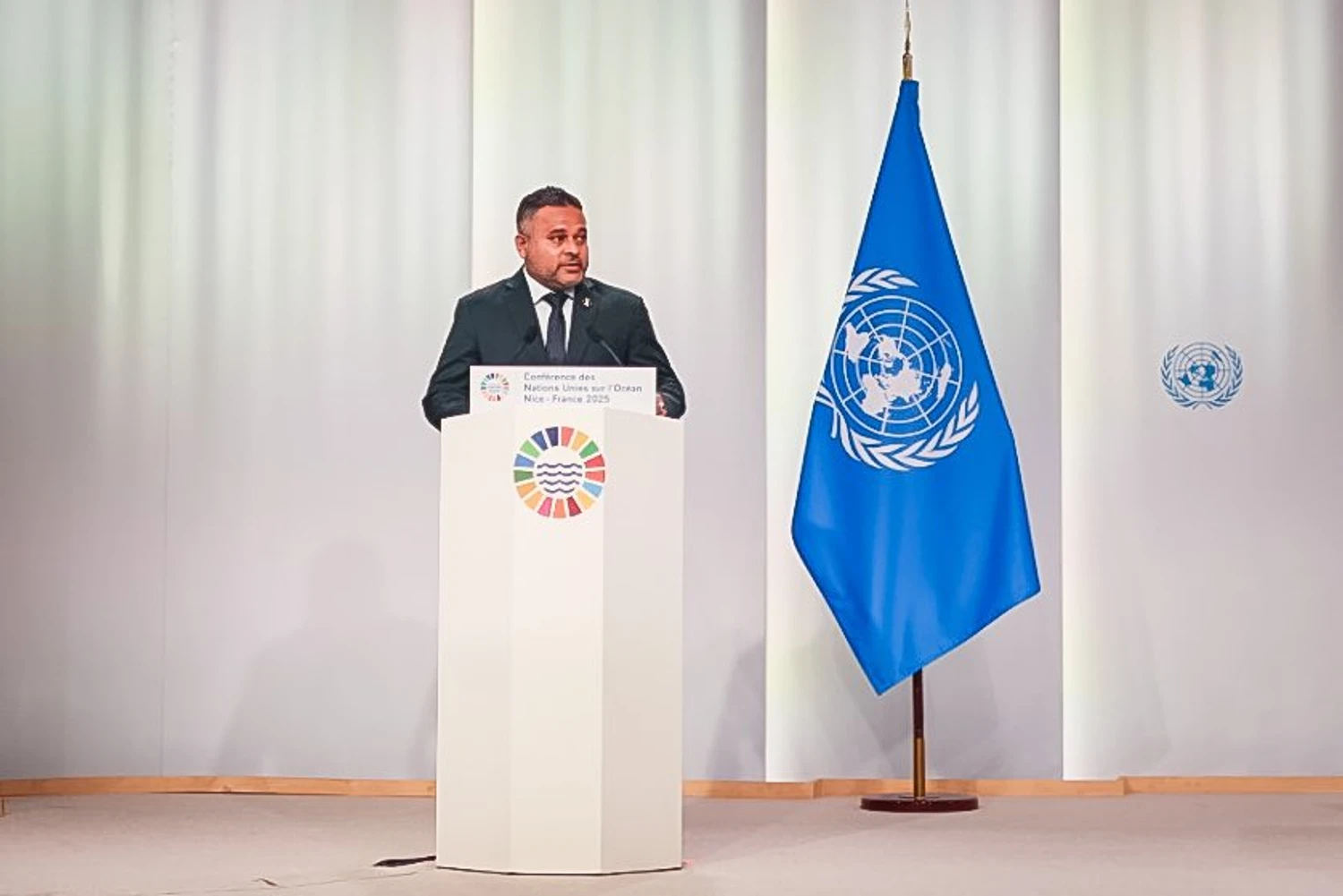
June 10, 2025
Minister’s Speech at the UN Ocean Conference (UNOC3) in Nice, France
Excellencies, distinguished delegates and colleagues,
Assalaam Alaikum.
I convey the best wishes from H.E. President Dr. Mohamed Muizzu, who unfortunately could not be here today. He extends his deep appreciation to the governments of France and Costa Rica for co-hosting this vital gathering. We thank you, for the warm welcome to the beautiful shores of Nice.
We meet at a critical time –
the UN Decade of Ocean Science for Sustainable Development. A decade that calls on us to unlock the science we need for the future we want. To transform the way we observe, understand, and collectively govern the ocean, not just in laboratories, but in local communities, in boardrooms, and on fishing vessels. It is about bridging gaps between disciplines, between nations, and between science, knowledge and policy.
For the Maldives - a large ocean state - ocean governance is deeply personal.
The ocean is not a backdrop to our lives. It is our life. Every Maldivian depends directly on the ocean - for food, for income, for survival. The fishers who rise before dawn. The communities who live by the coast. The tourism sector that draws the world to our turquoise crystal-clear waters and coral reefs. All of it, every thread of our national fabric, is woven into the ocean.
Our schools of tuna, caught one-by-one, are more than a market product. They are a symbol of culture, sustainability and stewardship. Our first UNESCO Biosphere Reserve in Baa Atoll stands as a success in ecological and economic harmony.
But the ocean as a provider, is also under siege. Climate change, rising sea levels, and coral bleaching are not just scientific concerns. It is our lived reality.
And yet, we are not only on the frontlines of risk: we are on the frontlines of action.
We have protected over 93 marine areas and established OECMs. We championed the inclusion of ocean accounts in the UNOC3 Declaration – to guide ocean-based sectors.
We are also modernising our fisheries sector with cleaner vessels, smarter technologies, and stronger science. In fact, the Indian Ocean skipjack tuna stock assessment relies on decades of data maintained by Maldivian fishers since the 1950s.
We are progressively phasing out single-use plastics, and actively supporting the call to finalise a legally binding treaty on plastic pollution, and are advancing circular solutions to keep our waters free from the waste that chokes marine life.
And we are ensuring that SIDS, who rely on the ocean the most, have a seat at the decision-making table. Because the future of the ocean cannot be written by a few, for the many. It must be co-authored by all of us, by every nation, every island voice and every community that depends on the tide.
In that spirit, the Maldives was among the first ten countries to sign and ratify the BBNJ Agreement. We urge all States to do the same and enable its early entry into force.
But meaningful partnership must also facilitate fair, and accessible finance. SIDS face high borrowing costs and limited access to affordable finance.
The Maldives therefore urges developed countries, and creditors to reduce borrowing costs for SIDS. For those in debt distress, consider relief in return for investments in SDG 14.
Crucially, the most effective financial solutions are those that are shaped from the ground up—designed with, and by the private sector and local communities, not merely imposed upon them.
That is not charity. That is justice. Ocean justice.
We do not ask for handouts. We offer leadership and the tools to show real progress. Let us not ask for small islands to do big things with small means. Let us invest in partnerships, ones where local action can drive global results.
Let us not measure our success by the declarations we draft, but by the capacity we nurture, the reefs that regrow, and the children who dive into a living ocean and still find wonder.
May we be here not as representatives of nations, but as stewards of one, indivisible ocean.
Shukuriyaa, I thank you.